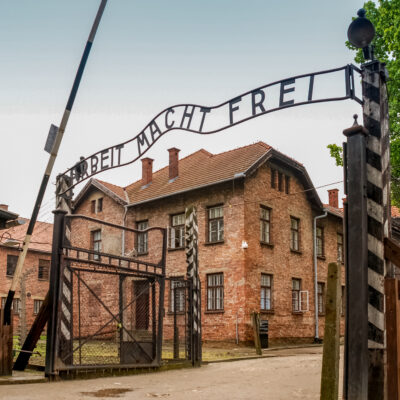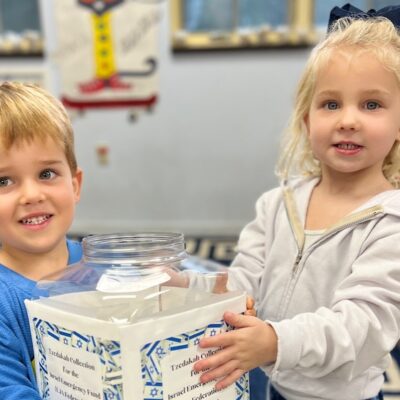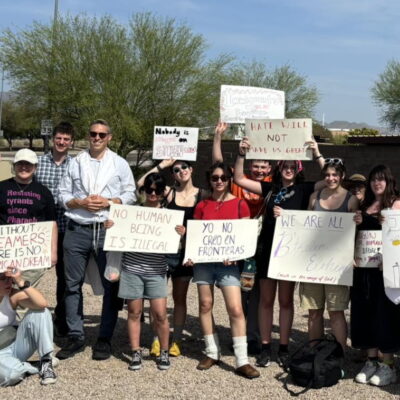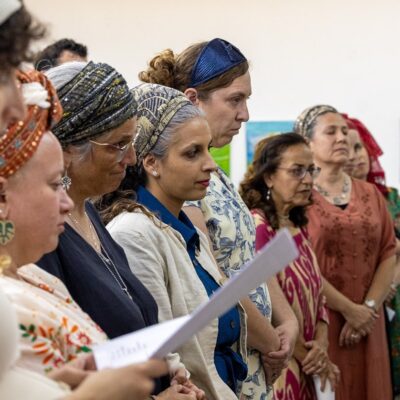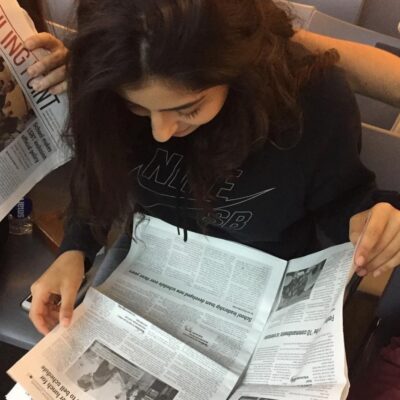Opinion
The “Joke” is on Us: A Call to Action for Today’s Jewish Leaders
 By Teri McGuire
By Teri McGuire
I cried on the way home from Shabbat dinner this week. And I was actually pretty impressed that I kept it in that long. The tears welled in the corner of my eyes five times during the evening, but I was able to blink them back until I was walking up Broadway.
My first Shabbat living on the Upper West Side, a place I had selected over all other boroughs and neighborhoods, arguing to people, “Brooklyn might be hip, but the UWS, that’s where my people are.” My people, in the general sense, being 20 something liberal, Conservative Jews. Young people who, like me, want to experience all Manhattan has to offer, but also love a good niggun on Friday night. My people have the power to make me feel part of something bigger than myself, like I truly belong in a larger sense. But at the same time, they have the power to make me feel like I am completely alone.
It always starts the same. There is always foreplay – a comment about fire, a bunch of Jews crammed into a small place, a mention of counting people or something in a quantity of six. Then someone else takes the bait and before you can bat an eye, a Holocaust joke has made a group of young Jews erupt into laughter. A “joke” about mass genocide, about senseless suffering, about trauma and loss and indescribable pain. A “joke” about a true, historic event that prevented my mother from ever meeting her grandparents, which stopped her parents, Dora and George Pollack, from being educated past the 2nd grade level, which left these two, my sweet grandparents, without parents, most of their siblings, and any of their dignity.
The trauma of the Holocaust runs deep in my veins, heart, and mind. Every day I remind myself that my very existence is a miracle, an act of resistance, and a reminder that an evil plot was thwarted eventually – albeit too late for what could have been billions of offspring. And even more timely, as I struggle to accept the loss of my grandfather, a wound that is not yet even a year old, I find myself reflecting on a world empty of survivors. A world where I can’t join my grandmother in the kitchen for a simultaneous cooking and Yiddish lesson, where a young person can’t experience the earsplitting silence ever-present in a survivor’s firsthand testimony, where no one can stand up and say, “It really did happen, I was there.”
So as I sat, surrounded by fifteen of “my people” as they laughed over and over again at this caliber of “humor” I wanted to jump out of my skin, but all I did was turn to the person next to me and try to fade out the conversation surrounding us. Why, you might be wondering, did I hold my tears back until my emotive expedition back to my apartment? After sitting through five different rounds of Holocaust jokes, none that I wish to validate by repeating here, why didn’t I say anything to my friends/peers?
The answer is simple: fear. I was so afraid, that like so many other times in my life, the response I would get would only make my eyes wetter. When I tell someone I’m offended by his or her latest Holocaust joke the responses may vary, but they always disappoint. Here are just a few classics:
- “It’s okay, I can say that, I’m Jewish.”
- “Humor is one way of dealing with tragedy/trauma, how else do you want me to cope?”
- “What? You don’t like that one? Maybe you’ll like this one better…”[insert Holocaust joke]
- “Oh, sorry I offended you, I’ll stop making these jokes when YOU are around.”
The four examples above are excuses and deflections – they are baseless misdirects which really say, “What I am doing isn’t wrong and even if it is, this isn’t my fault, it is our society’s fault.” We should all be offended by Holocaust “jokes,” whether we are Jewish or Buddhist, white or orange, 87 or 17. We should all be ashamed of making light of an atrocity that proved what humankind could be capable of.
But let me also make one thing perfectly clear: People who make Holocaust jokes are not bad people. In fact, the only reason tears sprang to my eyes Friday night is because I knew everyone in the room had a good heart and ultimately good intentions. That is what hurts the most, that these “jokes” have penetrated our lives so deeply, that people do not take issue with them.
While we ate our dinner, a myriad of things that DO offend my fellow dinner guests became very clear. Many of them find issues with:
- Most words that have ever come out of Donald Trump’s mouth
- The way women are made to view their own place in society
- The prevalence of rape within our country and the world
- The mistreatment of people of color
- The plight of the Palestinian people
- White/male privilege
I know these concerns are also on the minds of most other young Jewish people, so I ask that you allow your compassion and conscience to care about this issue as well. Check this privilege. Does it not occur to you that 70 years ago a meal like the one I attended couldn’t have happened? That I would have been eating a daily ration of “soup” and bread instead of our chicken and mashed potatoes feast and four dessert options? That our lively Birkat Hamazon tune would have been a faint whisper, if we even had the strength or ability to believe in a Divine to say thank you to at all?
I am writing to you to start a conversation and call for a change in culture and dynamic. How can we teach ourselves, our children, and our children’s children that there is no humor in the suffering of others? That our energies are better spent fighting for justice or being grateful that we are in a better and brighter place? I welcome comments and thoughts about how this could change. But more than that, I welcome the comments and remarks that shout, “You’re overreacting,” “Get a sense of humor,” and “Move on!” Because I am done crying, and ready to break my silence.
Teri McGuire is a recent graduate of the Hornstein Jewish Professional Leadership Program at Brandeis University where she earned a Masters in Jewish Professional Leadership and a Masters in Near Eastern and Judaic Studies with a concentration in Israel Education from the iCenter. She currently lives in NYC and is a proud employee of the Foundation for Jewish Camp’s program team.

